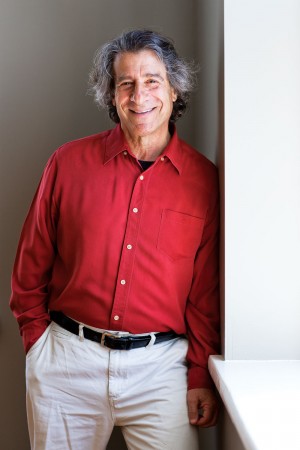New Territory | Inside Yankee
The first story I published in Yankee was in 1977. I wrote it in longhand on yellow lined paper, then typed it on my gray manual Smith Corona. If I made a mistake (and I made many), I’d slip a sliver of correction tape over the mangled word and make things right. I typed thousands […]

Photo Credit : Jarrod McCabe
The first story I published in Yankee was in 1977. I wrote it in longhand on yellow lined paper, then typed it on my gray manual Smith Corona. If I made a mistake (and I made many), I’d slip a sliver of correction tape over the mangled word and make things right. I typed thousands of words of notes, then meticulously cut them into strips of paragraphs and sentences and taped them around my office walls. Then I walked around and corralled like-minded ideas and scenes together, eventually finding a coherent way to spin a narrative. I was the last editor to close the typewriter lid. While my colleagues’ new desktop computers hummed along, I persisted in clacking out words. Eventually, when all their stories were turned in long before mine, I came onboard.
I thought you should know that I have a tendency to cling to familiar ways. Thus I’ve always loved holding printed books and magazines in my hand, seeing black words against the curtain of white. Smelling the ink, feeling the pages rustle. In time, I started to tentatively explore this new territory of digital publishing. Stories now could be told with as many words and photos as they needed, not just what could fit on eight or ten magazine pages. I saw the possibility of new connections between editors and readers, conversations that could go broader and deeper than ever before. Which brings me to a host of new ventures Yankee is offering, starting now, even as you read this. At the risk of sounding like a Ginsu-knife salesman—“Wait, there’s more!”—here’s a sampling.
This month we launch NewEngland.com. All tucked together, it’s simply a way to embrace lots of special Yankee stuff. NewEngland.com will become your online destination for all things New England: a feast of recipes, editors’ travel choices, where to find the best lobster rolls, events to get you on the road, advice from experts, and yes, a whole lot more! You’ll discover more New England in one place than anywhere in the world. Plus, YankeeMagazine.com, which includes ten years of our archives, is like having a Yankee library at your fingertips, without the clutter.
And since we’ve all missed Yankee coming out every month, we’re changing that. Yankee’s all-new digital edition will appear in the months when our print edition doesn’t, brimming with New England stories and columns, along with videos, podcasts, slide shows, social networking, and enough links to other features to give you a good excuse to let the hours slip by. (You can sign up at NewEngland.com/allaccess.) I think Huck and Mark Twain would today tuck an iPad away on the raft as they drifted together to see what lay ahead.
Mel Allen, Editor editor@YankeeMagazine.com
Mel Allen
Mel Allen is the fifth editor of Yankee Magazine since its beginning in 1935. His first byline in Yankee appeared in 1977 and he joined the staff in 1979 as a senior editor. Eventually he became executive editor and in the summer of 2006 became editor. During his career he has edited and written for every section of the magazine, including home, food, and travel, while his pursuit of long form story telling has always been vital to his mission as well. He has raced a sled dog team, crawled into the dens of black bears, fished with the legendary Ted Williams, profiled astronaut Alan Shephard, and stood beneath a battleship before it was launched. He also once helped author Stephen King round up his pigs for market, but that story is for another day. Mel taught fourth grade in Maine for three years and believes that his education as a writer began when he had to hold the attention of 29 children through months of Maine winters. He learned you had to grab their attention and hold it. After 12 years teaching magazine writing at the University of Massachusetts-Amherst, he now teaches in the MFA creative nonfiction program at Bay Path University in Longmeadow, Massachusetts. Like all editors, his greatest joy is finding new talent and bringing their work to light.
More by Mel Allen

